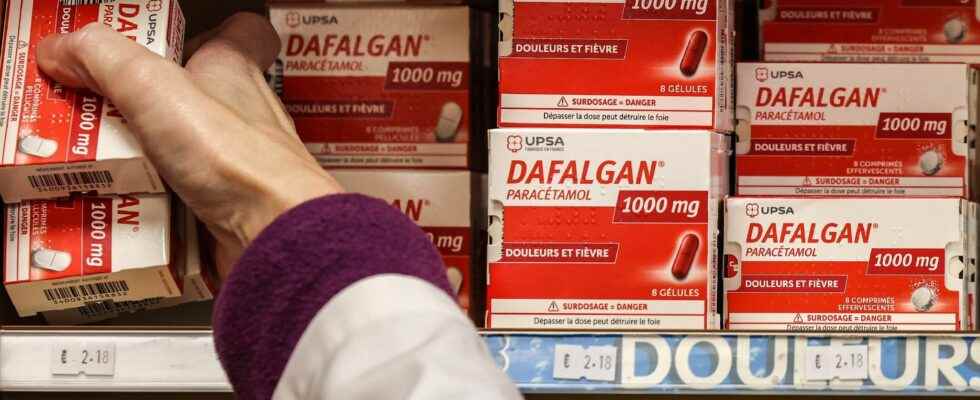“The shortage has been our daily life for months,” sighs Stéphanie. This pharmacist based in Côte-d’Or contacts laboratories, wholesalers and even doctors every day, in vain. The display dedicated to Doliprane for children remains empty. “We are on the lookout, but there are a lot of requests,” she explains. “And sometimes we don’t have solutions.”
If the shortage of drugs is not new, it has worsened since the beginning of winter. So much so that the National Medicines Safety Agency (ANSM), the General Directorate of Health (DGS) and the Federation of Pharmaceutical Unions of France (FSPF) meet every week to monitor the evolution of stocks. Between the drugs concerned, alternatives… L’Express takes stock.
What drugs are involved?
The authorities have noted for several weeks supply difficulties on certain drugs. And when asked which ones, Pierre-Olivier Variot does not hesitate: “all”. “Today, there are 3,000 missing molecules”, explains to L’Express the president of the Union of Dispensary Pharmacists’ Unions (USPO). “This figure has doubled since the start of 2022.”
Present in Doliprane and Efferalgan, paracetamol is one of the most publicized cases. But the shortage also concerns amoxicillin, syrups, insulin, cancer drugs… Since the start of winter, medicines in the form of sachets and suppositories have also tended to become scarce.
What are the causes of this shortage?
The authorities point to the epidemics of influenza, bronchiolitis and Covid-19 which are raging in France. For example, “there is a 13% increase in the consumption of paracetamol which was not anticipated by the manufacturers”, underlined the Minister of Health François Braun on France 2. Result, the demand is more and more stronger, and increasingly rare drugs.
But the triple epidemic is not the only culprit. The sector has been confronted for several years with a major problem: globalization. 80% of active pharmaceutical ingredients are manufactured in China and India, according to the European Medicines Agency (EMA). This dependence leaves the risk of a shortage hanging over each disruption in the market, such as during the waves of Covid-19. “We must therefore relocate production to France”, concludes Pierre-Olivier Variot.
The objective is to better control production, but also prices. “In France, drugs are not sold at a very high price, so it is much more interesting for manufacturers to supply other countries,” laments Stéphanie. A problem shared by Germany, which also decided to raise prices last December.
How long will the shortage last?
The government wants to be reassuring. Regarding paracetamol, the return to normal could “happen very quickly”, estimated the Minister of Health François Braun on Thursday. As for amoxicillin, the situation should be resolved “in two months”. The production of the precious antibiotic has just been authorized in 47 French pharmacies.
On the side of practitioners, the discourse is more cautious. The end of the triple epidemic will not solve the problem of dependence on China, and “it has already been a few months that the government has been promising us that everything will work out”, recalls Pierre-Olivier Variot. “But I’m optimistic, I want to believe it.”
While waiting for the end of the shortage, what are the alternatives?
The main solution is to substitute one drug for another. Patients can thus buy Efferalgan, rather than Doliprane. “It’s a short-term method,” warns Stephanie. “Because with the domino effect, we compensate for the lack of Doliprane by creating a lack of Efferalgan…”.
Abstaining is the only other alternative. The National Medicines Safety Agency (ANSM) recommends limiting the sale of paracetamol to two boxes per person, in the absence of a prescription. But “patients should not worry,” reassures Pierre-Olivier Variot. “It’s up to us, not them, to find solutions.”
